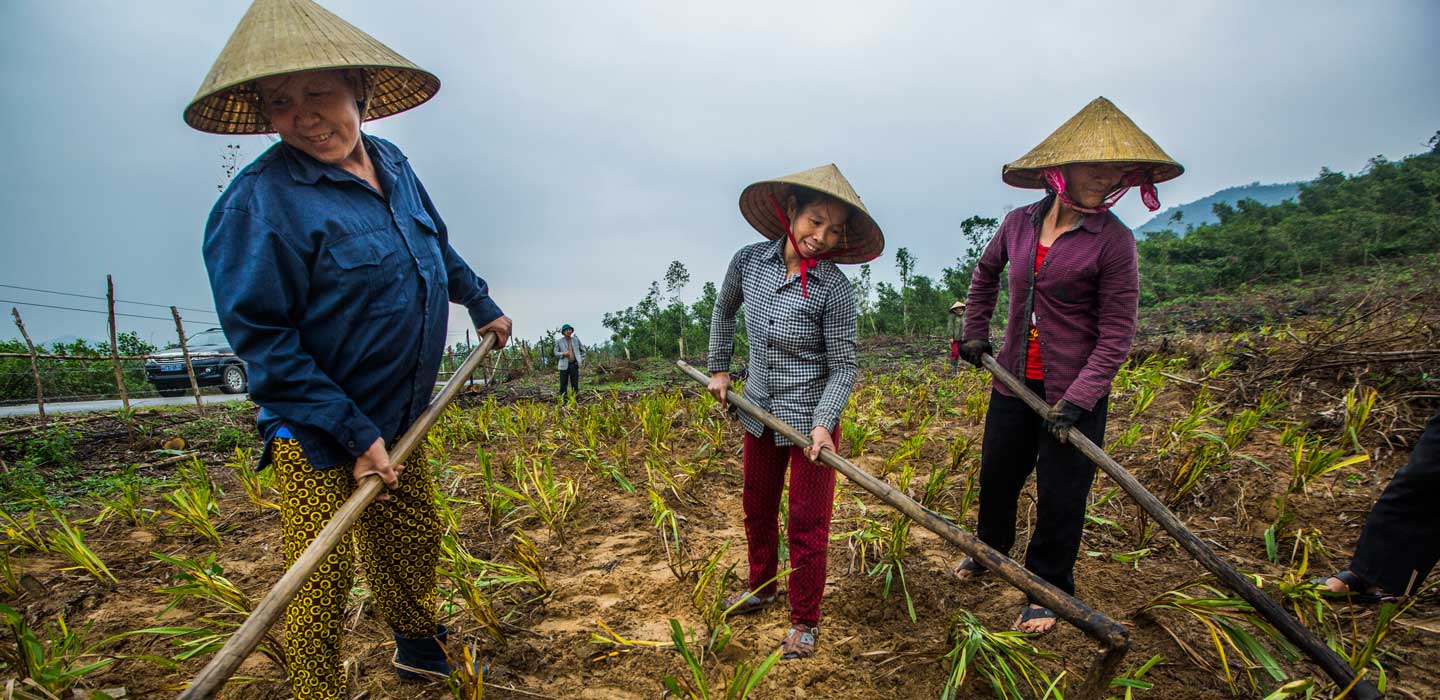A new development paradigm
IFAD Asset Request Portlet
Asset Publisher
A new development paradigm
Estimated reading time: 3 minutes
Vietnam - Sustainable Rural Development for the Poor Project in Ha Tinh and Quang Binh Provinces (SRDP) - November 2017
A conference taking place this week in Buenos Aires, Argentina reminds us that developing countries today look as much to each other for help along their path to development as they do to the developed world. In fact, dichotomies like “developed/developing” are rapidly blurring-- like so much else in our rapidly changing world. In the face of climate change, rising inequality, competition for resources, migration and other challenges, the “Global South,” with its powerful emerging economies, is finding that it has a vast source of everything from finance to technology and expertise: itself.
The Second High-level United Nations Conference on South-South Cooperation, or BAPA +40, marks four decades since the first conference of the Global South was held in Buenos Aires, which saw 138 countries adopt the Buenos Aires Plan of Action for Promoting and Implementing Technical Cooperation among Developing Countries. This Plan of Action contained 38 concrete recommendations to enhanced cooperation among countries of the Global South, also called South-South and Triangular Cooperation (SSTC).
It’s a very different world today from the one of the first BAPA. In 1978, the seven largest economies (the G7 group) contributed 62 per cent to the world’s GDP, then at US$8.5 trillion; in 2017, global GDP had grown to US$80.7 trillion, while the share of the G7 had fallen to 45 per cent (World Bank, 2019).
BAPA+40 will attract more than 1,500 representatives of United Nations Member States, UN and other international organizations, multilateral development banks, civil society, and representatives of the private sector. The three Rome-based UN Food agencies, or RBAs (FAO, WFP and IFAD) will be represented by IFAD Vice President Cornelia Richter. The RBAs have a particular interest in this conference because of their complementary mandates which help to fight hunger, strengthen smallholder agriculture and transform the lives of poor rural people all over the world.
In 2017 the RBAs adopted a "Joint Roadmap on SSTC towards BAPA+40" which includes the co-implementation of projects on the ground, and they are identifying countries in which targeted joint SSTC activities will be developed. The RBAs are also identifying private-sector entities that can provide technical assistance and knowledge to smallholder farmers in agricultural value chains, as well as exploring opportunities for private-sector financing.
SSTC is well adapted to agricultural development because of comparable environmental, agricultural and economic conditions in many countries of the Global South. Agricultural production in the Global South is increasingly threatened by climate change, resource depletion, urbanization, and food loss and waste. Rural-urban migration is growing in all developing nations, leaving fewer rural producers under pressure to meet an increasing demand for food and related agricultural products.
Countries will need to enhance rural productivity, promote climate change adaptation, harness the power of new technologies and support the establishment of farmers' organizations and networks. These measures demand increased investment, the spread of new technology, knowledge exchange and policy support—all areas in which SSTC can play a role.
Today, SSTC has emerged as a major development modality that operates in parallel with North-South cooperation. It also encompasses a much broader notion of development cooperation than the idea of “aid.” It includes trade, policies, knowledge sharing, investment, and private sector collaboration. But SSTC is also about solidarity, reciprocity, trust and working to build self-reliance.
As the development community works towards the achievement of the 2030 Agenda and the Sustainable Development Goals (SDGs), SSTC is a means to strengthen multilateral approaches that have come under threat in recent years. In collaboration with member states, a number of agencies in the United Nations system are already expanding and diversifying their support for SSTC. For example, IFAD has launched an SSTC Facility with the Government of China, and established three sub-Regional SSTC and Knowledge Centres to ramp up its effort in SSTC.
The active participation of FAO, IFAD and WFP in BAPA +40 to promote food and nutrition security marks another significant milestone on the path to achieving sustainable rural development and the ultimate goal of eliminating hunger and poverty with the help of SSTC.
Publication date: 20 March 2019